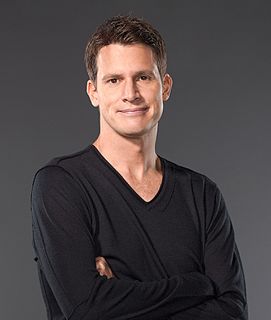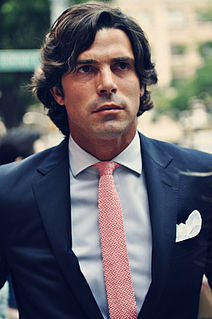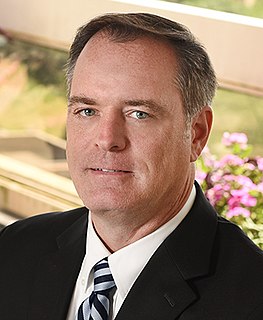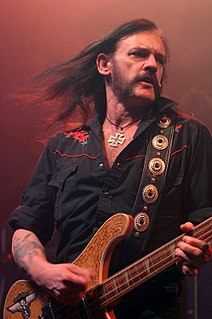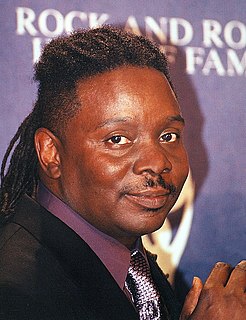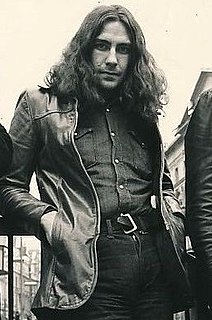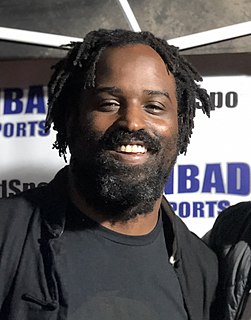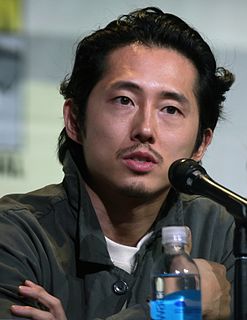A Quote by Maeve Binchy
Most people, once the money started getting bigger, thought we would buy a millionaire's house looking out at the sea - but what would two middle-aged people do that for? We were sensible enough when we got it.
Related Quotes
Money is very difficult to think about. So, we think about money as the opportunity cost of money. So, we at some point went to a Toyota dealership and we asked people, what will you not be able to do in the future if you bought this Toyota? Now, you would expect people to have an answer. But people were kind of shocked by the question. They never thought about it before. So, the most we got was people said, "Well, if I can't buy this Toyota, if I buy this Toyota, I can't buy a Honda." What is this thing? What is this value of price? Very hard to think about it.
The problems of 2008 were never cured. The Federal Reserve's solution to the crisis was to lend the economy enough money to borrow its way out of debt. It thought that if it could subsidize banks lending homeowners enough money to buy houses from people who are defaulting, then the bank balance sheets would end up okay.
I think this is when most people give up on their stories. They come out of college wanting to change the world, wanting to get married, wanting to have kids and change the way people buy office supplies. But they get into the middle and discover it was harder than they thought. They can't see the distant shore anymore, and they wonder if their paddling is moving them forward. None of the trees behind them are getting smaller and none of the trees ahead are getting bigger. They take it out on their spouses, and they go looking for an easier story.
There were days - she could remember this - when Henry would hold her hand as they walked home, middle-aged people, in their prime. Had they known at these moments to be quietly joyful? Most likely not. People mostly did not know enough when they were living life that they were living it. But she had that memory now, of something healthy and pure.
In the beggining of I was getting all this feedback from people saying, "What are you doing? What is this?" But I thought to myself, "This is a great opportunity. This is a perfect bridge to help me achieve my dream and my vision of polo becoming a bigger, more visible sport." So I used the money that I was getting from modeling to buy better horses and to become a better player. So I really believed that if I could elevate my game and show that I was serious about it, then the work I was doing with Ralph Lauren would become that bridge that I was looking for to take the sport further.
Someone once said that "The Waste Land" was a scum of poetry floating on a sea of footnotes. That resonated with me, because that's kind of what I was doing lyrically for a while. I was being very referential in a way. I would drop in these little phrases or ideas that were sort of portholes into a whole bigger realm of thought or whatever, that would work within the song, but that you could also poke through into a bigger discussion.
You've got to try to figure out which is the bigger benefit and which is the bigger loser. It nearly killed him [Eric Clapton ]; he was in a very, very bad way for a long time, but he came through it. Most people don't come through it because they don't have the money to buy the people to look after them.
In the beginning, me and my bandmates just did stuff on our own - we had smoke bombs, we'd dress as crazy and as weird as we possibly could, just to give ourselves a different ambience. But when we started making money, of course, the ideas started getting bigger. We were big fans of Broadway; we were like, "Man, when you go see a Broadway show, you just get pulled right out of reality; you're into their world for a two-hour period. It would be nice if we could do that onstage with a music concert".
My whole thing in life is I just want freedom. I thought that money would give me that freedom. I was wrong. It bound me more than it freed me, because now I had more things to worry about, more people asking for money, I thought I had to buy a house and nice cars and different things that people with money are supposed to do.
You can say that all you want, but even in the little time that I've been in this industry, I've learned that it isn't exactly what you expect, so you've got to have a level head. I thought people would dig it. I thought people would enjoy it. It's AMC. I thought people would be fans. But, I did not think we would be the best new show on television.
If Jeff Bezos and I had started Amazon.com in a poverty-stricken corner of Africa, there would have been no job creation because there would be no people to buy the stuff from Amazon.com. The difference here is the American middle class, which is by every measure the most extraordinary economic achievement in the history of the world.







